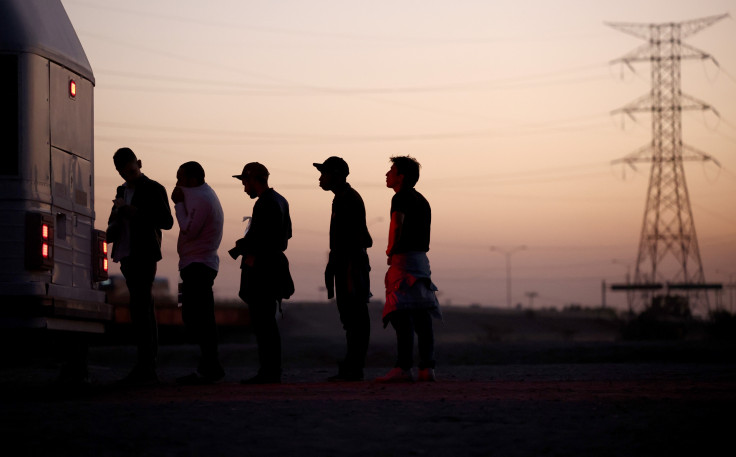
Rafael Antonio Marin Leon works construction in Mexico City and sends money back to his family in Venezuela every month.
As an undocumented migrant, he faces different challenges when trying to send and receive remittances in the country. "You earn a little money and you want to help your family, but you can't send them any because you don't have documents," he told The Latin Times.
Like thousands of people in his situation, he said that a lack of documentation and access to financial institutions has allowed for others to take advantage of him. "We have to go to a Mexican or someone who can help us withdraw money, and most of them demand we pay them for the favor," he lamented.
The issue of financial inclusion for migrants in Mexico, for those en route to the U.S. and those are staying is growing, especially after Mexico agreed to reduce migrant flows into the United States last year.
Irregular migrant detentions inside Mexico surged from 185,038 in January-May 2023 to 590,401 during the same period this year, and remittance payments from high migrant flow countries like Venezuela into Mexico have spiked from USD $83,900 in the second quarter of 2023 to $3.47 million for the same period this year.
Both migrant organizations and banks have taken note.
Last week, the International Organization for Migration (IOM) and Banco Azteca, one of Mexico's largest financial institutions, announced a new partnership aimed at ending the exclusion of undocumented migrants from financial services.
Still in the early stages, the alliance intends to better combine civil society and the banking sector with both organizations sharing information and experience to better include migrants in Mexico's financial system.
"Banco Azteca shared with us how they have a large share of the Mexican remittance market," Alberto Cabezas, a spokesperson for the IOM in Mexico, told The Latin Times.
He said the bank has been working to include more vulnerable groups in the banking system. Banco Azteca now "has a specific product for people who are in Mexico migrating, and that is where migrant populations and other mobility processes can enter," he added.
The bank also launched "Guardadito Amigo," a savings account that can receive remittances with a monthly limit and no commissions. It also counts access to some level of medical and psychological assistance, as well as repatriation in case of death, according to El Economista.
Banco Azteca, which is owned by one of Mexico's richest men, Ricardo Salinas Pliego, is aware of the profitability this area can bring. In 2019, the billionaire earned over USD $200 million from commissions on transfers from Mexican migrants in the US back to Mexico, and he's been accused in the US of "deceptive business practices" and has been labeled a "loan shark."
Bank commissions on remittance payments are often a nuisance for low-earning migrant workers.
Nestor, a 35-year-old migrant from Ecuador who works in a chocolate factory in Mexico City, complained about the high commissions traditionally imposed by banks.
"It is quite complex, not to say a scam, that they do to the issuer of remittances, with the likes of banks such as Banco Azteca or any other, the commissions are too high!" he said.
"We are talking about (the banks) earning in one minute what I have to work two or three days to earn. They earn it in 10 seconds, two clicks, and they earn hundreds of dollars, while I have to work days to earn that rate," he added.
However, commissions are sometimes the least of migrants' worries when it comes to other dangers associated with being unbanked.
Nestor told The Latin Times that a criminal group in the central state of Hidalgo kidnapped him and his brother after learning they were trying to send US dollars abroad. (Ecuador's economy is dollarized).
"They kept us locked up for 10 days," said Nestor. "Some people were locked up there for two or three months; those who paid got out, and those who didn't stayed there."
© 2025 Latin Times. All rights reserved. Do not reproduce without permission.





